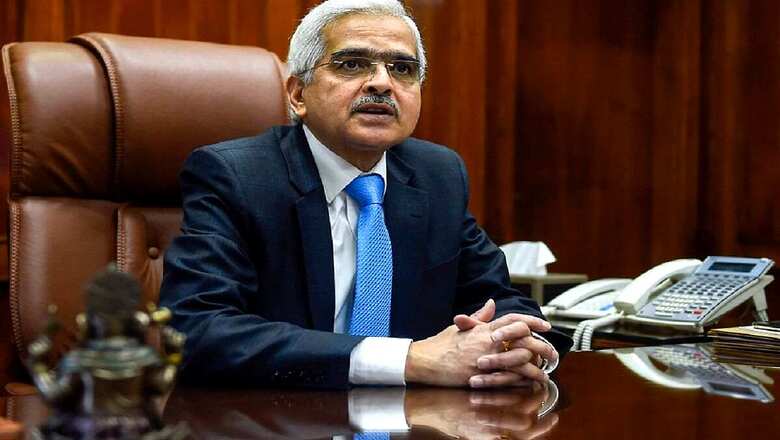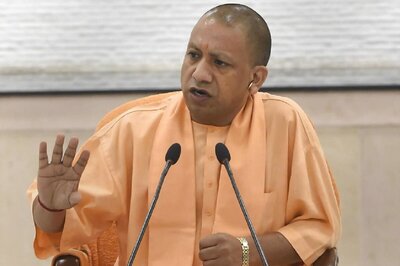
views
RBI Governor Shaktikanta Das voted for status quo at the last bi-monthly monetary policy review arguing that premature rollback of policies undertaken to mitigate the impact of the pandemic would be detrimental to nascent growth and recovery, minutes of the meeting showed on Friday.
All members of the Monetary Policy Committee (MPC) — Shashanka Bhide, Ashima Goyal, Jayanth R Varma, Mridul K Saggar, Michael Debabrata Patra and Shaktikanta Das — had voted for maintaining status quo in the policy review announced on December 4.
"Overall, the persistence of inflation at elevated levels constrains monetary policy at the current juncture. At the same time, though recovery is underway, there is still continuous need to nurture and support growth to make it broad based and durable. "A premature roll back of the monetary and liquidity policies of RBI would be detrimental to the nascent recovery and growth," Das said, according to the minutes of the meeting released by the central bank.
After the three-day meeting (December 2 – 4) of the MPC, the RBI had kept the policy rate unchanged at 4 per cent citing high inflation. As per the minutes, the Governor said the Reserve Bank will continue to respond to global spillovers to secure domestic stability with its liquidity management operations. The various instruments at RBI's command will be used at the appropriate time, calibrating them to ensure that ample liquidity is available in the system, he added.
RBI Deputy Governor Patra noted that with growth gaining cyclical momentum, the window available to the MPC to look through inflation pressures is narrower than before. He said the wedge of 6.1 percentage points between wholesale and retail inflation in October 2020 is elevated relative to the historical record — an average of 3 percentage points between 2015 and 2019, and 4.3 percentage points in February 2020 before COVID-19 struck.
"More than half of this divergence is due to a combination of retailer margins in food prices (amplified by its higher weight in CPI than in the WPI), the sharp increase in taxes on petroleum products and alcoholic beverages in the post-COVID period (which are not captured in the WPI), and high prices of non-traded services such as healthcare, transport and personal services," he said, according to the minutes. He further noted depressed input costs are widening the gap on the downside. Costs of sanitisation, social distancing and of doing business have contributed to the higher retail markups in goods and services, and thereby to the difference between wholesale and retail inflation.
RBI Executive Director Saggar said though monetary policy "so far has provided a bungee cord to the growth", its tensile strength depends on how inflation evolves ahead. The nature of inflation still remains predominantly supply driven but with addition of some elements of cost-push inflation, that can get a further fillip if there is a feedback from recent increased rural wage inflation, he noted.
MPC member Varma said he supports maintaining the policy rate at its current level and also the accommodative stance and liquidity support that drive short-term rates towards the reverse repo rate rather than the repo rate, while being wary of a drop below the corridor. "The MPC must continue to be data driven and must continue to monitor future developments carefully," Varma said.
Goyal opined that although the margin between consumer and wholesale prices remains high for specific goods, suggesting retail supply chains are still disrupted, the fall in household inflation perceptions may be due to easier availability of goods. "Fear of shortages makes the consumer willing to pay high prices, but the Indian consumer is price sensitive and will begin to search for lower price alternatives as mobility improves. Such searches may have started. There is a window for supply chains to stabilize," she said.
Bhide said the prevailing monetary and fiscal conditions represent favourable financial conditions for investment. However, support for the consumer demand will require return of employment and income growth. While government borrowing to finance the fiscal deficit is at a high level, government spending to support investment and consumption are needed at this juncture, Bhide said. The MPC was of the view that inflation is likely to remain elevated, barring transient relief in the winter months in prices of perishables.
Read all the Latest News, Breaking News and Coronavirus News here

















Comments
0 comment